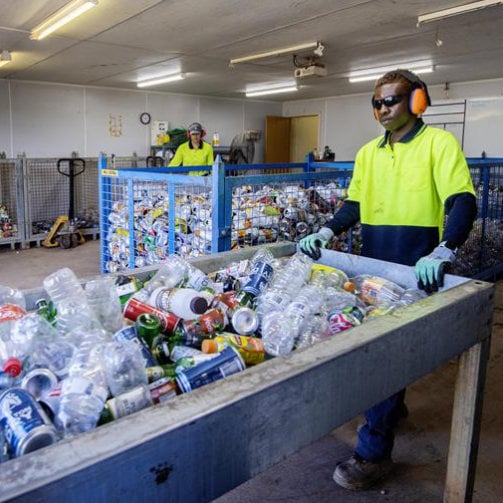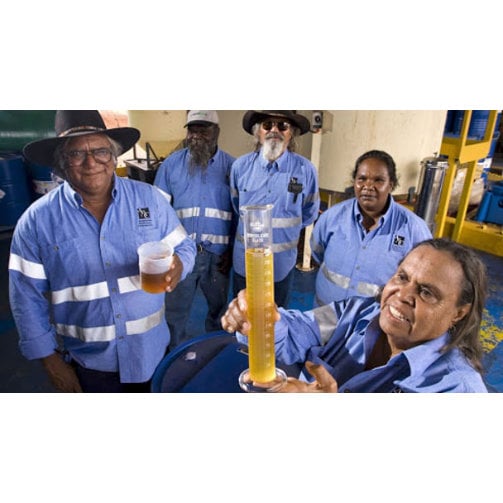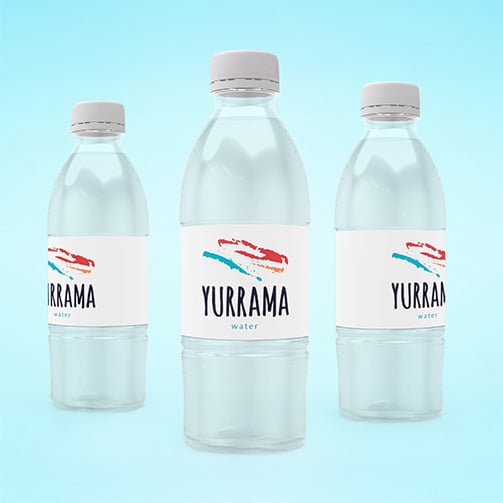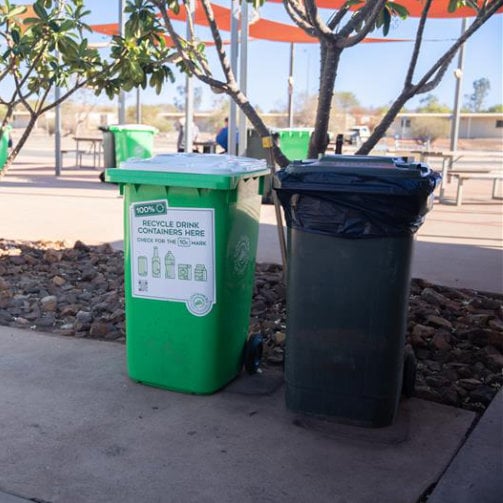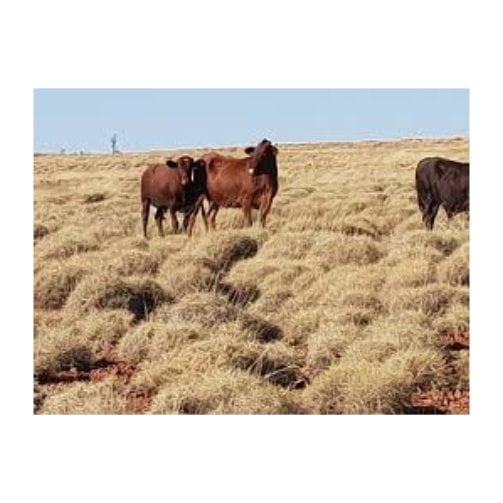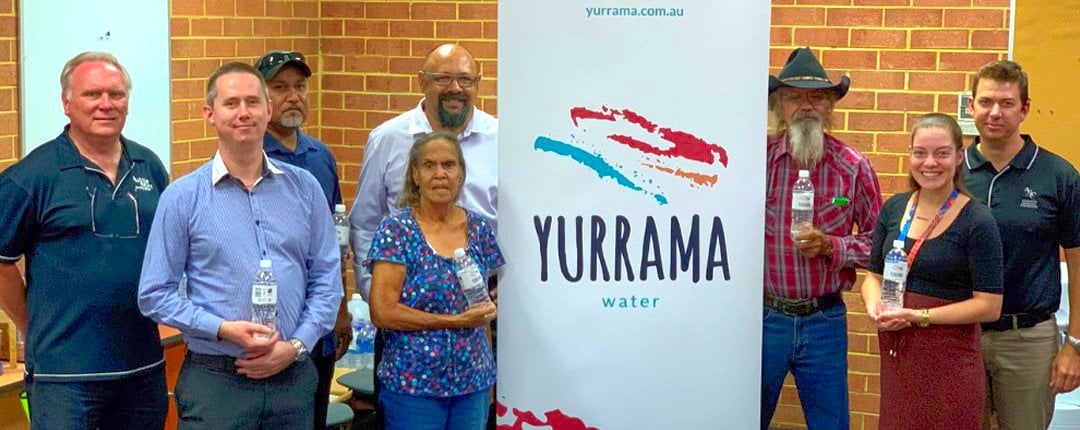
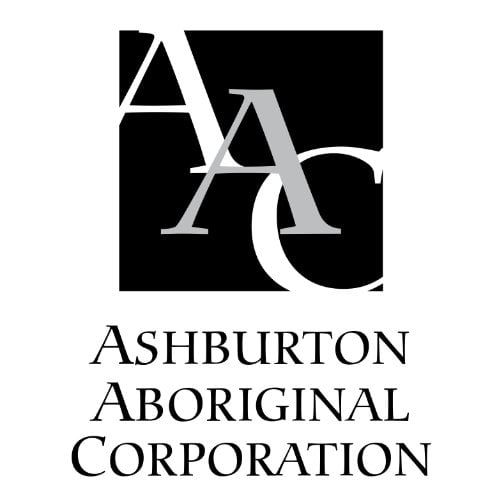
Ashburton Aboriginal Corporation (AAC)
The Landscape
As an incorporated non-profit, AAC’s existence represents an acute need in community for employment, enterprise, and upskilling opportunities for Indigenous people. Addressing this need is a multitude of services and initiatives for job seekers in the Pilbara designed to empower and support, with cultural sensitivity and understanding.
Sodexo and AAC have been partnered for almost a decade, joining forces in 2016 to support AAC’s biodiesel production by providing raw materials. Since this time, Sodexo’s involvement with AAC has exponentially grown, incubating and championing new projects and initiatives.
From that point it just exploded. We went from Sodexo being our biggest advocate and pretty much our only client to having a warehouse filled exclusively with Yurrama Water and having it shipped all the way from Perth to the Northern Territory and offshore operations
“The capability of Yurrama and the subsequent Containers for Change program changed the trajectory of AAC and has contributed to more than 80 jobs being generated off the back of it. And it is all thanks to Sodexo’s involvement.”
Twelve months on from the launch of Yurrama Water, AAC averaged 8,000 cartons of water sold per month—a 500% increase sales prior to Sodexo’s involvement. Today, Sodexo alone purchases approx. 180,000 cartons annually for sale and consumption across 47 sites.
Through these initiatives, AAC has successfully transitioned 77 people from unemployment to jobs, some with major mining companies. The program has not only created opportunities but has also empowered individuals by fostering financial independence and stability.
The Tom Price sorting facility, established as part of the C4C program, has created roles for long-term unemployed jobseekers, with employees paid from the proceeds of Yurrama Water. Today, all of Sodexo’s sites in the Pilbara purchase Yurrama Water and actively participate in used cooking oil donation and container collections, strengthening the impact of these programs.
Some of the outcomes of this initiative include:
- Over 14 million plastic, glass, and aluminium containers have been diverted from landfill, with more than a million dollars in refunds donated to local charities since the program's inception
- Over the past year, AAC recycled 3.5 million containers, with 418,388 of these collected through Sodexo at its client sites. This collaborative effort raised over $40,000 for charity, diverted the equivalent of 6.84 shipping containers of waste from landfill, saved enough water to fill 1.46 Olympic-sized swimming pools, and avoided as much carbon emissions as would be generated by driving around the Earth 17 times in a passenger vehicle
- Eight jobs for long-term unemployed jobseekers in Tom Price, with three of these employees being onboarded in full-time career roles
- A mentored paid work experience program created for jobseekers within the C4C recycling program
Sodexo has facilitated industry connections to bolster AAC’s cattle processing initiatives. Demonstrating its commitment, Sodexo has pledged to purchase the first batch of beef reared by Indigenous Australians, paving the way for one of Western Australia’s first commercially available Indigenous-produced beef products.
The initial range of products will include:
- Diced beef
- Silverside
- Thin sausages
- Beef mince
- Burger patties
Already, these food items have been integrated into Sodexo’s Food Platform menus to ensure this premium product is given the attention it deserves. Trials for Ashburton and Ashmulla beef have just commenced in mining villages in Tom Price.
Long-term, this business venture will provide AAC with means to make quality beef and beef products available to remote and disadvantaged Indigenous communities at low to no cost, helping to combat hunger.
Closing the loop
AAC sits in a unique space empowering Indigenous job seekers to receive training and employment opportunities.
With every endeavour and with the support of businesses such as Sodexo, AAC is ‘closing the loop’ to produce environmental, social, cultural, and economic outcomes for Indigenous Australians like Brandi, Susan and Maria, and many others.
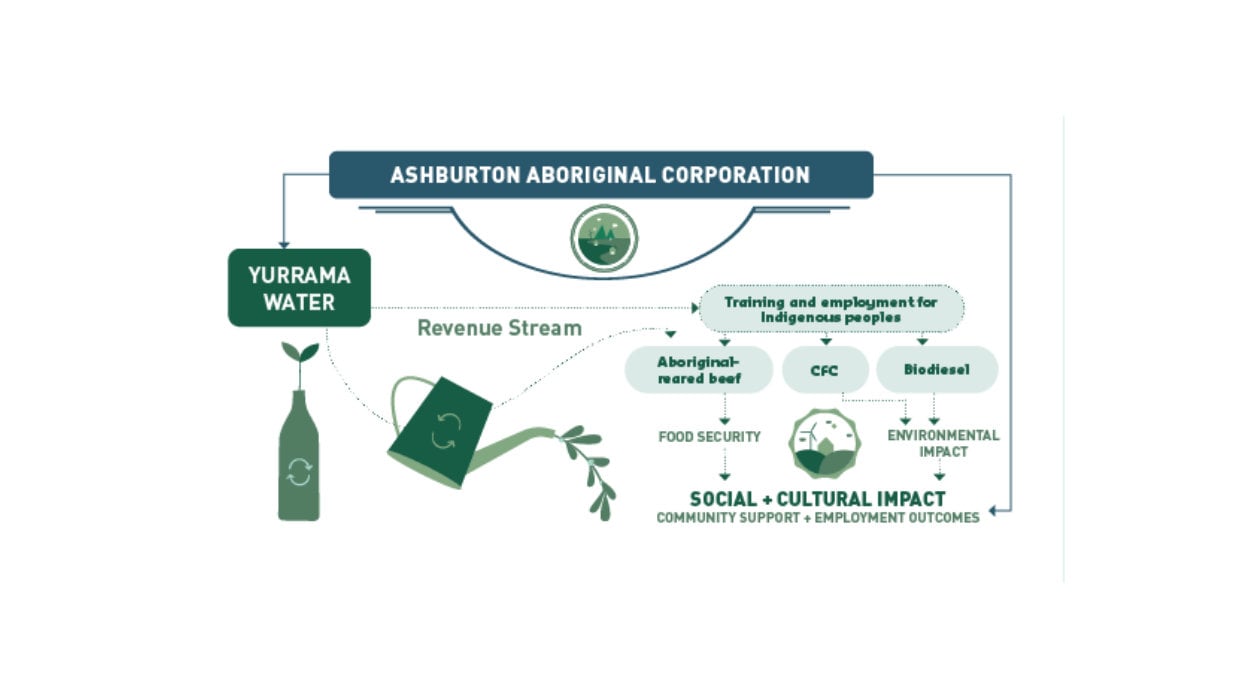
Sodexo’s Commitment to Indigenous Business
Sodexo’s journey with reconciliation began in 2011 launching its first RAP and our commitment to fostering meaningful change has only grown stronger. In the last four years alone, we’ve spent over $100 million with more than 50 Indigenous-owned businesses, reinforcing our dedication to supplier diversity and economic empowerment.
Our focus goes beyond numbers—we strive to build lasting partnerships with Indigenous businesses and vendors, creating a ripple effect of positive economic outcomes for communities across Australia.
To deliver on our RAP commitments, we actively prioritise direct recruitment, career pathways, relationship-building with Traditional Custodians, community engagement, and nurturing Indigenous business partnerships. Together, we’re fostering shared success and lasting impact.
